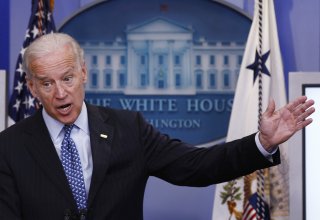Student Loan Payments Will Resume on February 1, Biden Warns
Some people have raised concerns about the political consequences of resuming payments, arguing that frustration among left-leaning college students could lead to decreased turnout in future election cycles.
The Biden administration has indicated that federal student loan payments will resume on February 1, after a two-year moratorium, despite pressure from progressive activists and lawmakers to extend it.
Student loan forgiveness, long a priority on the Democratic Party’s left-wing, has been a sensitive issue for the Biden administration, which has accepted that the payments cannot be suspended indefinitely. However, as the White House has repeatedly considered ending the moratorium over the past year, activists have repeatedly pushed for extensions, citing economic concerns over the still-recovering economy. In recent meetings between Biden administration officials and debt relief advocates, some people have raised concerns about the political consequences of resuming payments, arguing that frustration among left-leaning college students could lead to decreased turnout in future election cycles.
A letter to Biden from Senate Majority Leader Chuck Schumer (D-N.Y.), Sen. Elizabeth Warren (D-Mass.), and Rep. Ayanna Pressley (D-Mass.) suggested that a resumption of loan payments would cost American families $85 billion over the next year, according to the Roosevelt Institute, a liberal think tank. The three members of Congress suggested that such a measure would “hurt individual families and the economy as a whole” and strongly urged the president to extend the moratorium. They also suggested that $50,000 should be forgiven from all borrowers, stating that such a move “would relieve an enormous burden from borrowers while pumping billions of dollars per year back into our national economy.”
When campaigning for president, Joe Biden indicated that he would forgive a more modest $10,000 in loans for every student borrower. However, the loans, which are often held by private corporations, have typically insisted on full payment and questioned whether the Biden administration had the authority to unilaterally default on them. The Department of Education has launched a legal review into whether Biden’s actions are legal, and no decision has yet been made.
Polls on student loan forgiveness have revealed nuanced outcomes. While most Americans support some form of loan forgiveness, they also prefer that conditions be attached, including restricting loan forgiveness to poorer families and requesting that recent college graduates pursue some form of national service. Most Americans oppose blanket forgiveness of student debts, with the perception that they represent handouts to wealthier American families whose children are more likely to attend college.
Trevor Filseth is a current and foreign affairs writer for the National Interest.
Image: Reuters

